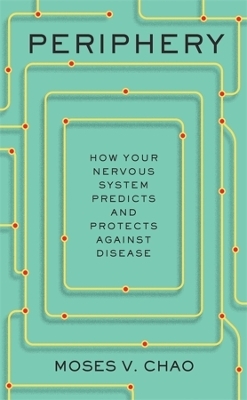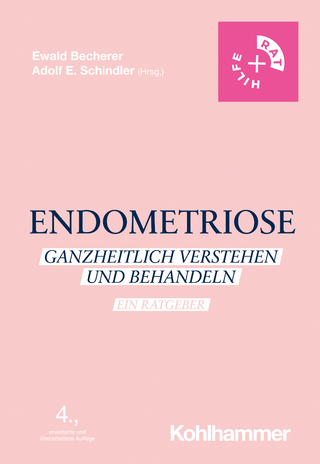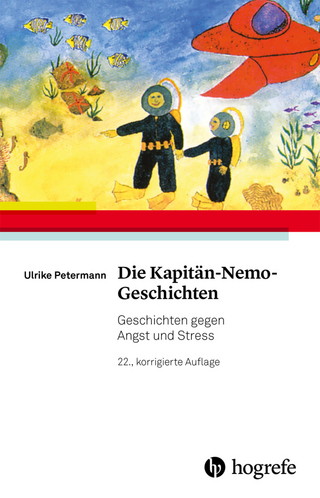
Periphery
How Your Nervous System Predicts and Protects against Disease
Seiten
2023
Harvard University Press (Verlag)
978-0-674-97230-8 (ISBN)
Harvard University Press (Verlag)
978-0-674-97230-8 (ISBN)
Moses Chao argues that activity in the peripheral nervous system predicts the onset of neurological and psychiatric conditions such as Parkinson’s disease, autism, and dementia. Responsible for regulating a range of involuntary bodily processes and for detecting smells, sounds, and touch, the peripheral system may also be a key to better health.
A leading neuroscientist argues that the peripheral nervous system, long understood to play a key role in regulating basic bodily functions, also signals the onset of illness.
The central nervous system, consisting of the brain and the spinal cord, has long been considered the command center of the body. Yet outside the central nervous system, an elaborate network of nerve cells and fibers extends throughout our bodies, transmitting messages between the brain and other organs. The peripheral nervous system, as it’s known, regulates such vital functions as heart rate, digestion, and perspiration and enables us to experience the barrage of sounds, tastes, smells, and other sensory information that surrounds us. But beyond these crucial roles, the peripheral nervous system might do even more: it might warn us of diseases in our future.
As Moses Chao argues in Periphery, from Parkinson’s disease to autism to dementia, many neurological conditions emerge not in the brain but rather within the peripheral nervous system, in the dense network of nerves that wrap around the gastrointestinal tract. What’s more, dysfunctions of the peripheral nervous system can signal the onset of disease decades before symptoms like tremor or memory loss occur. Fortunately, unlike nerves in the brain and spinal cord, peripheral nerves can heal and regenerate in response to injury and aging. The therapeutic implications are remarkable. Chao shows how, with a better understanding of the peripheral nervous system, we could not only predict and treat neurological diseases long before their onset, but possibly prevent them altogether.
Full of new ideas and bold interpretations of the latest data, Periphery opens exciting avenues for medical research while deepening our understanding of a crucial yet underappreciated biological system.
A leading neuroscientist argues that the peripheral nervous system, long understood to play a key role in regulating basic bodily functions, also signals the onset of illness.
The central nervous system, consisting of the brain and the spinal cord, has long been considered the command center of the body. Yet outside the central nervous system, an elaborate network of nerve cells and fibers extends throughout our bodies, transmitting messages between the brain and other organs. The peripheral nervous system, as it’s known, regulates such vital functions as heart rate, digestion, and perspiration and enables us to experience the barrage of sounds, tastes, smells, and other sensory information that surrounds us. But beyond these crucial roles, the peripheral nervous system might do even more: it might warn us of diseases in our future.
As Moses Chao argues in Periphery, from Parkinson’s disease to autism to dementia, many neurological conditions emerge not in the brain but rather within the peripheral nervous system, in the dense network of nerves that wrap around the gastrointestinal tract. What’s more, dysfunctions of the peripheral nervous system can signal the onset of disease decades before symptoms like tremor or memory loss occur. Fortunately, unlike nerves in the brain and spinal cord, peripheral nerves can heal and regenerate in response to injury and aging. The therapeutic implications are remarkable. Chao shows how, with a better understanding of the peripheral nervous system, we could not only predict and treat neurological diseases long before their onset, but possibly prevent them altogether.
Full of new ideas and bold interpretations of the latest data, Periphery opens exciting avenues for medical research while deepening our understanding of a crucial yet underappreciated biological system.
Moses V. Chao is Professor of Cell Biology, Physiology and Neuroscience, and Psychiatry at the NYU School of Medicine. A member of the National Academy of Sciences and past president of the Society for Neuroscience, he is a recipient of the Zenith Award from the Alzheimer’s Association, a Jacob Javits Neuroscience Investigator Award, and a Guggenheim Fellowship.
| Erscheinungsdatum | 03.10.2023 |
|---|---|
| Zusatzinfo | 12 illus. |
| Verlagsort | Cambridge, Mass |
| Sprache | englisch |
| Maße | 140 x 210 mm |
| Gewicht | 408 g |
| Themenwelt | Sachbuch/Ratgeber ► Gesundheit / Leben / Psychologie ► Krankheiten / Heilverfahren |
| Medizin / Pharmazie ► Medizinische Fachgebiete ► Neurologie | |
| Naturwissenschaften ► Biologie ► Humanbiologie | |
| Naturwissenschaften ► Biologie ► Zoologie | |
| ISBN-10 | 0-674-97230-9 / 0674972309 |
| ISBN-13 | 978-0-674-97230-8 / 9780674972308 |
| Zustand | Neuware |
| Informationen gemäß Produktsicherheitsverordnung (GPSR) | |
| Haben Sie eine Frage zum Produkt? |
Mehr entdecken
aus dem Bereich
aus dem Bereich
ganzheitlich verstehen und behandeln - Ein Ratgeber
Buch | Softcover (2023)
Kohlhammer (Verlag)
28,00 €
wie Frauen mit AD(H)S erfolgreich, selbstbewusst und stabil leben …
Buch | Softcover (2024)
Kösel (Verlag)
18,00 €
Geschichten gegen Angst und Stress
Buch | Softcover (2024)
Hogrefe Verlag
12,95 €


